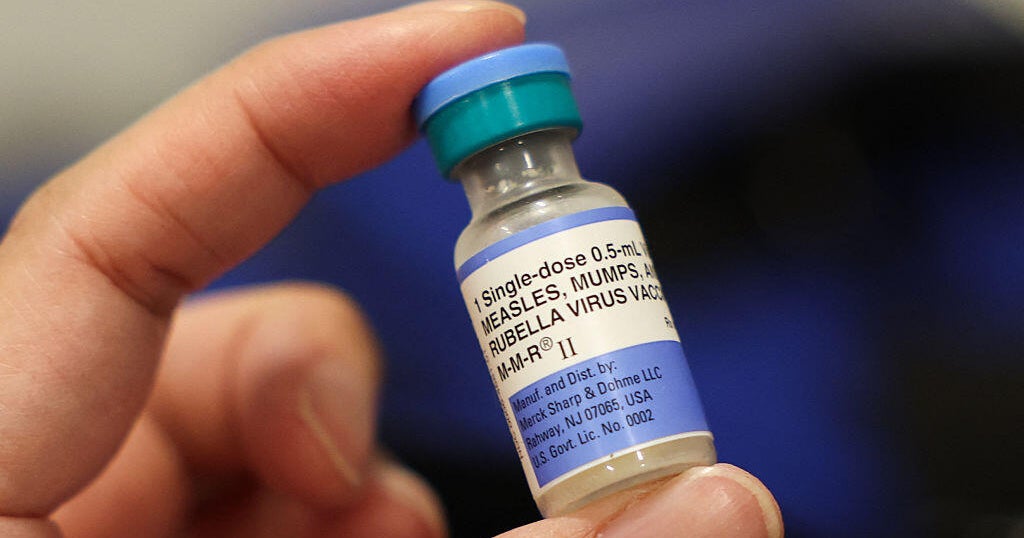Thousands of types of illegal vaping devices, mostly from China, flooding U.S. despite FDA crackdown, report says
Washington — The number of different electronic cigarette devices sold in the U.S. has nearly tripled to over 9,000 since 2020, driven almost entirely by a wave of unauthorized disposable vapes from China, according to tightly controlled sales data obtained by The Associated Press.
The surge stands in stark contrast to regulators' own figures, which tout the rejection of some 99% of company requests to sell new e-cigarettes while authorizing only a few meant for adult smokers.
The numbers demonstrate the Food and Drug Administration's inability to control the tumultuous vaping market more than three years after declaring a crackdown on kid-friendly flavors. Most of the disposable e-cigarettes, which are thrown away after they're used up, come in sweet and fruity flavors like pink lemonade, gummy bear and watermelon that have made them the favorite tobacco product among teenagers.
They are all technically illegal, but their influx has turned FDA's regulatory model on its head. Instead of carefully reviewing individual products that might help adult smokers, regulators must now somehow claw back thousands of illegal products sold by under-the-radar importers and distributors.
Most disposables mirror a few major brands, such as Elf Bar or Puff Bar, but hundreds of new varieties appear each month. Companies copy each other's designs, blurring the line between the real and counterfeit. Entrepreneurs can launch a new product by simply sending their logo and flavor requests to Chinese manufacturers, who promise to deliver tens of thousands of devices within weeks.
Once a niche market, cheaper disposables made up 40% of the roughly $7 billion retail market for e-cigarettes last year, according to data from analytics firm IRI obtained by the AP. The company's proprietary data collects barcode scanner sales from convenience stores, gas stations and other retailers.
More than 5,800 unique disposable products are now being sold in numerous flavors and formulations, according to the data, up 1,500% from 365 in early 2020. That's when the FDA effectively banned all flavors except menthol and tobacco from cartridge-based e-cigarettes like Juul, the rechargeable device blamed for sparking a nationwide surge in underage vaping.
But the FDA's policy - formulated under President Donald Trump - excluded disposables, prompting many teens to simply switch from Juul to the newer flavored products.
"The FDA moves at a ponderous pace and the industry knows that and exploits it," said Dr. Robert Jackler of Stanford University, who has studied the rise of disposables. "Time and again, the vaping industry has innovated around efforts to remove its youth-appealing products from the market."
Adding to the challenge, foreign manufacturers of the prefilled devices don't have to register with FDA, giving regulators little visibility into a sprawling industry centered in China's Shenzhen manufacturing center.
Under pressure from politicians, parents and major vaping companies, the FDA recently sent warning letters to more than 200 stores selling popular disposables, including Elf Bar, Esco Bar and Breeze. The agency also issued orders blocking imports of those three brands. But IRI data shows those companies accounted for just 14% of disposable sales last year. Dozens of other brands, including Air Bar, Mr. Fog, Fume and Kangvape, have been left untouched.
FDA's tobacco director, Brian King, said the agency is "unwavering" in its commitment against illegal e-cigarettes.
"I don't think there's any panacea here," King said. "We follow a comprehensive approach and that involves addressing all entities across the supply chain, from manufacturers to importers to distributors to retailers."
The IRI data obtained by the AP provides key insights beyond figures released last week by government researchers, which showed the number of vaping brands in the U.S. grew nearly 50% to 269 by late 2022.
IRI restricts access to its data, which it sells to companies, investment firms and researchers. A person not authorized to share it gave access to the AP on condition of anonymity. The company declined to comment on or confirm the data, saying IRI doesn't offer such information to news organizations.
To be sure, the FDA has made progress in a mammoth task: processing nearly 26 million product applications submitted by manufacturers hoping to enter or stay on the market. And King said the agency hopes to get back to "true premarket review" once it finishes plowing through that mountain of applications.
But in the meantime disposable vape makers have exploited two loopholes in FDA's oversight, only one of which has been closed.
FDA's authority originally only referenced products using nicotine from tobacco plants. In 2021, Puff Bar and other disposable companies switched to using laboratory-made nicotine.
In December 2021, Patrick Beltran, one of the businessmen behind Puff Bar, told "CBS Mornings" co-host Tony Dokoupil, "People always say, like, 'You guys are trying to sidestep or side skirt, you know, kind of laws.' And we're not. You know, I mean, if there's a law that would order us off the market tomorrow, we would pull our products off the market tomorrow."
Congress closed that loophole last year, but the action gave rise to another backlog of FDA applications for synthetic nicotine products. Under the law, FDA was supposed to promptly make decisions on those applications. The agency has let most stay on the market while numerous others launch illegally.
An earlier loophole came from a decision by Trump's White House, which was made without the FDA's input, according to the previous director of the agency's tobacco program.
"It was preventable," said Mitch Zeller, who retired from the FDA last year. "But I was told there was no appeal."
In September 2019, Trump announced at a news conference a plan to ban non-tobacco flavors from all e-cigarettes - both reloadable devices and disposables. But political advisers to the president worried that could alienate voters.
Zeller said he was subsequently informed by phone in December 2019 that the flavor restrictions wouldn't apply to disposables.
"I told them: 'It doesn't take a crystal ball to predict that kids will migrate to the disposable products that are unaffected by this, and you ultimately won't solve the problem,'" Zeller said.







